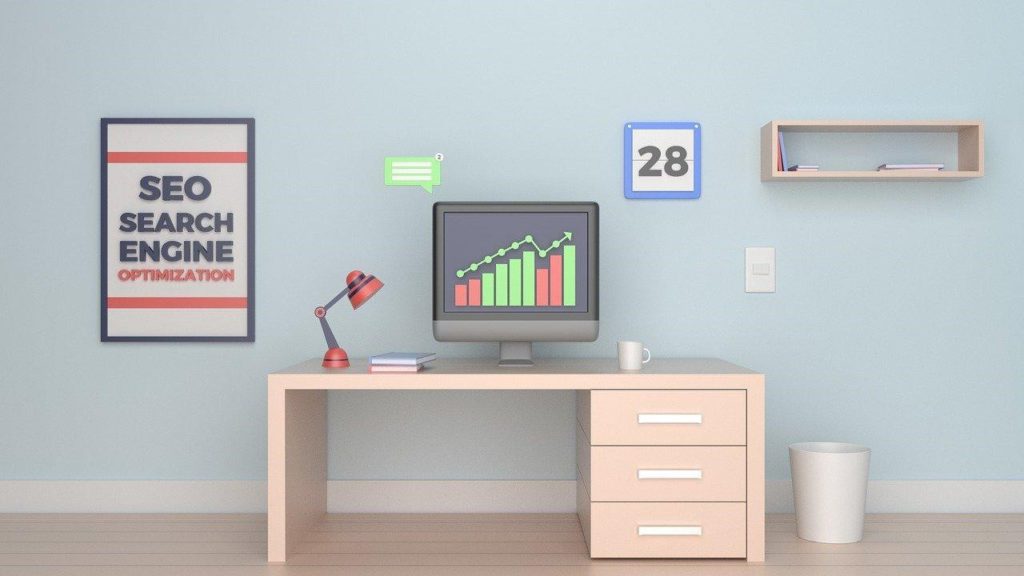SEO continues to be one of the most essential parts of web development and website maintenance for business owners. Whether you run a personal blog site or manage a large-scale eCommerce platform, optimizing your content for better search ranking is a must.
According to recently published data, Google managed over 70% of total desktop search traffic in 2021, with Google’s search algorithm relying on 200+ factors to rank each site. Some of these factors include content length, keyword choice, and density, multimedia selection, and optimization, as well as link building.
SEO for your website is a long-term investment, an activity that you’ll have to tend to periodically regardless of how good your products, services, or content are. Let’s discuss on-page SEO for WordPress websites and how it can help you reach your audience more easily in 2022.
Importance of On-Page SEO for your WordPress Website
On-page, or on-site, SEO, is the activity in which you optimize web pages for better search ranking. Every web page on your domain falls under on-page SEO. This type of content optimization isn’t solely focused on the copy – every link, image, or video you place on your site will add or detract from your on-page SEO.
This is why this type of optimization is so important regardless of what you’re buying, promoting, or publishing. Google’s (and other) web crawlers have evolved past simply looking for relevant keywords to use as ranking elements in SERP. Instead, every piece of data present on your pages will either boost your site’s ranking or lower it. Here are the most important reasons to pay closer attention to on-page SEO moving forward:
— Higher overall ranking in search engines like Google, Bing, and Yahoo.
— Faster and more successful web crawler visits and page indexing.
— Increase your traffic, conversion, and sales rates across the board.
— Improve your website’s load times for all pages.
— Increase your site’s ROI compared to poor or non-existent SEO.
Tips for Effective On-Page SEO
1. Healthy Keyword Density Matters
Even though Google’s SEO algorithms evolved past caring only about keyword density, it is still quite important. Choosing the right keywords and phrases to integrate into your content can boost your site’s appeal for visitors looking for those specific terms. After all, this is mostly how people will search for content relevant to their target results in Google or other search engines.
Moreover, finding the most trending keywords through Google Keyword Planner or SEMRush will increase the likelihood of your pages ranking higher. A good rule of thumb is to aim for a 1.0 keyword density in each web page, with one or several focus keywords at the most. So, for example, if you have 1000 words on your web page in total, 1/100 should be the focus keyword. This will help your pages appear more organic while also avoiding them coming off as stuffed with keywords or spammy.
2. Mix Internal and External Links on All Pages
Link building is a pivotal part of on-page SEO for multiple reasons. Placing internal links, links to your other pages, into each page on your domain will allow people to easily transition from one piece of content to another. In a similar vein, external links will build your reputation and allow people to gain extra insight into whatever topic they’re reading about.
Internal and external links present on your site will speak of how confident, professional, and trustworthy your pages are. Spamming internal links to no end will only serve to showcase how closed your website is. Try to offer a bit of both for you and both they and search engine web crawlers will look toward your efforts favorably.
3. Write Custom Meta Titles and Descriptions for Every Page
Meta titles and meta descriptions represent the content someone will see when they spot your website on search engine results pages (SERP). The short blurb is all you’ll have when it comes to convincing people to visit your site instead of another one. This is why metadata is so important, as it can attract more leads to your site very effectively. Making your meta title and meta description different from what is set by default will give you some control over what the final copy looks like.
Meta titles (-60 characters) and meta descriptions (-160 characters) are automatically derived from your page title and first paragraph. This can often look clunky and uninspiring, meaning that you should opt for custom metadata instead. Implementing your chosen keywords into the metadata is also very significant, as it can further help your ranking. This keyword placement doesn’t add up to the keyword density of your main on-page content, so add keywords to your metadata anytime you publish a new page.
4. Always Check Spelling and Formatting Before PublishingContent
Whether you publish your copy in English, German, Chinese, or other languages, you must take the time to proofread it. Misspelled content full of grammar and proofreading errors won’t go well with web crawler algorithms. They’ll assume that your content is of low quality and rank it accordingly.
You can avoid this by using GrabMyEssay to have your content written, proofread, and formatted by professional writers and editors. This will let you focus on managing your website’s “bigger picture”, such as planning future content, preparing multimedia, and installing WordPress plugins. If you don’t have a dedicated copywriter in-house, outsourcing is your second-best option. Never create content if you’re unsure of how to do it properly, especially when it comes to grammar and formatting.
5. Write Alt-Tags for All of your On-Page Multimedia
The more multimedia you start using on your pages, the more you’ll have to worry about site load times and SEO. Images, videos, and audio files are far “heavier” than plain text. While they’re visually and auditorily more appealing, they’re also more difficult to load than the copy. It’s why you should not only optimize their size without the loss of overall quality but also write alt-tags for each.
Alt-tags represent “alternative text” which describes each piece of media on your site in the text. This is used both for people with poor internet connections to fully enjoy your content, as well as visually or auditorily impaired individuals. Google’s voice AI allows these people to experience the plain text as voice, for example, allowing them to enjoy the web as much as anyone else. Doing this will dramatically add to your on-page SEO as your content will be seen as more approachable, accessible, and user-friendly.
Managing On-Page SEO Effectively in 2022
The core purpose of SEO is to improve your site’s ranking with search engines and thus bring more potential customers to your doorstep. To do this right, you’ll need to optimize new content the same way you did with previous publications and update those over time with new links, keywords, and content.
SEO is a web optimization constant – it is something that you’ll always have to keep in mind when working on your site. Good SEO will bring visitors to your site, but great content is what will ultimately convince them to stick around. Done right, however, it can transform the way you do business and make converting new leads into customers that much easier.
Suggested:
Shopify SEO Tips: Mastering the Art of Growing Organic Traffic.
Powerful Off-Page SEO Checklist To Improve Your Organic Search.
Like this:
Like Loading...













 7 Best WordPress Theme Providers for 2025
7 Best WordPress Theme Providers for 2025